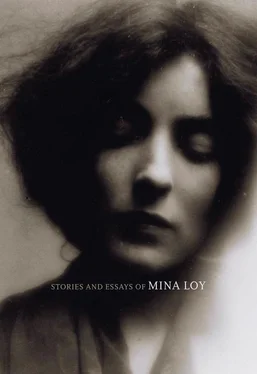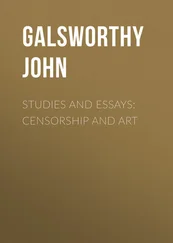Mina Loy - Stories and Essays of Mina Loy
Здесь есть возможность читать онлайн «Mina Loy - Stories and Essays of Mina Loy» весь текст электронной книги совершенно бесплатно (целиком полную версию без сокращений). В некоторых случаях можно слушать аудио, скачать через торрент в формате fb2 и присутствует краткое содержание. Год выпуска: 2011, Издательство: Dalkey Archive Press, Жанр: Современная проза, на английском языке. Описание произведения, (предисловие) а так же отзывы посетителей доступны на портале библиотеки ЛибКат.
- Название:Stories and Essays of Mina Loy
- Автор:
- Издательство:Dalkey Archive Press
- Жанр:
- Год:2011
- ISBN:нет данных
- Рейтинг книги:3 / 5. Голосов: 1
-
Избранное:Добавить в избранное
- Отзывы:
-
Ваша оценка:
- 60
- 1
- 2
- 3
- 4
- 5
Stories and Essays of Mina Loy: краткое содержание, описание и аннотация
Предлагаем к чтению аннотацию, описание, краткое содержание или предисловие (зависит от того, что написал сам автор книги «Stories and Essays of Mina Loy»). Если вы не нашли необходимую информацию о книге — напишите в комментариях, мы постараемся отыскать её.
Stories and Essays of Mina Loy
Stories and Essays of Mina Loy — читать онлайн бесплатно полную книгу (весь текст) целиком
Ниже представлен текст книги, разбитый по страницам. Система сохранения места последней прочитанной страницы, позволяет с удобством читать онлайн бесплатно книгу «Stories and Essays of Mina Loy», без необходимости каждый раз заново искать на чём Вы остановились. Поставьте закладку, и сможете в любой момент перейти на страницу, на которой закончили чтение.
Интервал:
Закладка:
They both seemed only with the years to be scrupulously washing themselves away.
Like millions and millions of us, they were living off a literature that has worn down to asterisks.
Ian, in opposition to his beginnings in their polished vacuum, had been passed through the fine filters of many minds, with particular reference to the cooling quality of those minds, having received no inoculation of sensuality among the animated furniture that so unaccountably stood for his parentage, instinctively conjectured that he might rather to have been conceived of some circumstance virile and intransigent, like a boxing-match.
And it was this absence of conviction of continuity with anything antedating him that instigated him to create anew.
At the art school he found the first latitude for his rearrangements where the actual that had been lacking to him revealed itself malconformed by denutrition and inactivity.
The nude model as a self-condemning protest against the overclothed.
He regarded the poor bare man, sagging on his staff, with his eyes of a lizard that had known no sun, and the excrescences of his unproud knees confounding his symmetry.
And in this invalid desert of northerly light, the Hermes of Praxiteles had been raising himself in eternal commentary.
Ian was huge above the students, straddled there with his bronze head reared over his coarse garb of a house painter and in his eyes, like bloodstones, flickered sudden lights of violent suspicions; he would now and then turn from his scrutiny, to spit aside. He was chewing tobacco.
Then he spat himself out of the door.
When he returned he was holding high up from the ground something unrecognisable, and dangling limply, and damp. The rope was coiled loosely through his fist.
He stretched the clothesline across a corner of the studio, and shifted the wooden pegs into position. A pair of drawers and a cotton shirt hung from them, upside down. They had been washed by the porter’s wife in the little back courtyard where Ian had found them.
Ian stood an easel up before them and began to draw.
The busy students became even more silent than before. Eccentric Englishmen, they suspected the disinterestedness of another Englishman’s eccentricities.
Unconcerned as his movements had been it was most probable that he counted on attracting their attention.
They behaved as London behaves at the parties of the newly rich.
But the newcomer was drawing with authentic ardour, there was a virile litheness in the lines of dejection — he scattered about.
+
And when the Professor entered he could scarcely be said to have glanced at the isolated monomaniac as he strolled on his rounds of correction.
He would cock his head aside a student’s and together they would wag, appraising the proportions of the lamentable being who hardly appeared able to hold together at all.
He talked a good deal of sensing the bourgeois structure beneath the masses, of noting how the leaning torso sagged into the pelvis.
When Ian felt that he was coming towards him he half abstractedly lifted off the long leg he had been resting over the wooden stool, and drawing aside a little, waited with a certain attention.
The Professor surveyed the drooping garments almost cautiously; with Ian’s drawing he was considerably more at ease.
“Well,” he said, “I suppose you know what you are doing.”
“That is my intention.”
Ian drew towards the little man and pushed his eyes slowly into his, as if imparting a confidence.
“I feel,” he rumbled ponderously, “for the contours of collapse, the bony structure to be, er, misleading.
“That is, that every issue, aesthetically should be kept — pure — absolute.
“If you get me?
“And that the degeneration of form, if it must be considered, be followed to its inevitable — ah — conclusions.
“That for instance, I can perhaps put it more clearly — the essence of drooping is a lack of inner support.”
The professor nodded at every pause.
“That fluidic quality of your line, I like,” he said.
“I aim, at — er — that particular sagging so to speak, of the stuff into the atmosphere,” Ian answered.
The professor popped down the chalk he was holding with a sharp return to himself— He looked at the model and then at Ian.
“Anyhow,” he said, “Next week we have a woman.”
“Ah the bastard—” Ian mumbled after him, “—the bastard!”
It was as if he had been smudged horribly across his eyes with an intimation of something unformedly akin to the creature on the model’s throne.
It occurred to him that he had never seen a woman unclothed.
Because the studio dust was somehow similar to the straggling hair on that body, it seemed so fearsomely to deprive that body of a divine right.
It was as if his mother in her chaste dress momentarily in his vision, foundered.
+
The sun through delicate shades was shining on Hyde as he awoke.
He was conscious of nothing except the vast living landscape of his body in which the faculty of existence never came to a frontier.
And yet the chest with the marble angels stood immovable only three yards from where he lay.
The bone of his brow and the spring of his nose between his eyes seemed to increase to a volatile mountain in which the mental nerves lay diffused in the strange numbness of this something infinite he projected.
The golden penetration of the sun through his eyelids, spread inwardly like supernatural light—
it liquefied him, and lifted him in imaginary ascension.
To his soul there were no limitations once he had shut his eyes.
TRANSFIGURATION
Outside the window a dead man hung from a tree beside the track, and the wind moved in his trousers.
The scout-train with its watchful soldiers standing barefoot on the roof preceded us for a space of danger, shunted off somewhere into the steaming sunset.
We crawled along among the prodigious verdure, miraculously ejected in a thousand varieties from the same inch of earth that bound the cocos in spiral strangulation, and fell in tufted cascades in their rush towards the skies.
Now that it was no longer protected, our train bucked monstrously, jarring my spine with the reverberation of impact; the gliding locomotive had been driven leisurely upon by another — — yet it was still twilight. The lights of an Indian farm in a clearing were not twinkling very brightly yet.
One of the extra soldiers who lay along his gun on the roof of a compartment rolled off and was crushed between the buffers; he was still a child and his gun was splintered.
“Do you come from far away?” asked the Mexican woman at my side.
“From Europe, New York, from Mexico City, and I have no salt.”
In my lap, saltless, in white impotence to the appetite, lay six hard boiled eggs; the sullen light from the ceiling filmed in their slippery spheres, while contours like diagrams for constructing female heads in old art primers reminded me how Dan Leno had said: “Funny thing an egg — — it hasn’t got any face.”
“Come we will go to the Indians and beg some salt,” said my companion.
Night pressed on the red glow of the torches held to the private parts of the locomotive that the train men were tinkering at blunderingly.
We pressed the palpable blackness that hit us back at every onward step, and arrived at a circle of human shadows. A woman with breasts under her insane hair challenged us, then she murmured to the circle and brought us back her gift.
I held my cupped palm out before me as I walked over the rocking flints, carrying the rough and turgid crystals carefully as a sacrament through the dark where the parted forest reared over the steel ribbons of the railroad.
Читать дальшеИнтервал:
Закладка:
Похожие книги на «Stories and Essays of Mina Loy»
Представляем Вашему вниманию похожие книги на «Stories and Essays of Mina Loy» списком для выбора. Мы отобрали схожую по названию и смыслу литературу в надежде предоставить читателям больше вариантов отыскать новые, интересные, ещё непрочитанные произведения.
Обсуждение, отзывы о книге «Stories and Essays of Mina Loy» и просто собственные мнения читателей. Оставьте ваши комментарии, напишите, что Вы думаете о произведении, его смысле или главных героях. Укажите что конкретно понравилось, а что нет, и почему Вы так считаете.












